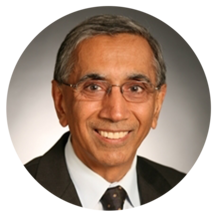About this Presentation
Eli (Goldratt, 2009) distilled out the 4 concepts (principles) of flow by considering how the seminal innovations in manufacturing flow management were developed to embrace increasingly unstable environments. The absence of reference to ‘constraints’ highlights the more abstract nature of these principles that encompass lean and TOC thinking. The focus on flow and limiting over production with continuous improvement are largely self-evident, but alongside this he exposes the need for a paradigm shift in thinking often missing in such applications (principle 3: abolish local efficiency). This presentation seeks to illustrate and extend these findings acknowledging the importance of system-based management signaling tools and the management of aggregated buffers in increasingly unstable environments. The presentation also explores how the choice of mechanism combines the need to both manage and reduce variability and uncertainty. In more stable environments the emphasis is on reducing variation and uncertainty across the delivery system, but higher instability brings with it the opportunity to gain immediate benefits which is where TOC exploits the opportunity to focus and use aggregated buffers to first align and then reduce the impact of variability and uncertainty. The presentation considers how this understanding can be used to interpret and extend mechanisms such as Statistical Process Control, Kanban, Vendor Managed Inventory, the Last Planner System and Buffer Management in a health and social care setting. Finally, the presentation identifies the growing need to hybridize and adjust the choice of mechanism where the nature and level of instability changes over time. References Goldratt, (2009), Standing on the shoulders of Giants: Production concepts versus production applications The Hitachi Tool Engineering Example, Goldratt Consulting.
What Will You Learn
To help you get the most value from this session, we’ve highlighted a few key points. These takeaways capture the main ideas and practical insights from the presentation, making it easier for you to review, reflect, and apply what you’ve learned.

Buffer management is a critical aspect of the Theory of Constraints (TOC), playing a central role in production, operations, and supply chain applications.
The principles of flow, including controlling the release of work into the system and focusing on continuous improvement, are key to improving operations and reducing waste.
The application of buffer management in healthcare systems can help manage patient flow and discharge dates, improving overall efficiency and patient care.
Instructor(s)
Roy Stratton
Professor Roy Stratton is an Associate Professor of Operations and Supply Chain Management at Nottingham Trent University and has researched and implemented TOC related developments for over 30 years. He obtained his PhD at Nottingham Trent University and is currently on the Board of Theory of Constraints – International Certification Organization (TOC-ICO). His research is largely case and action research based focusing on flow management in complex environments covering supply chain, project and healthcare. His research appears in the IJOPM, IJPE, Supply Chain Management: An International Journal, Journal of Manufacturing Technology Management,

Ms Alka Wadhwa
Alka Wadhwa is an experienced consultant and process improvement expert with over 24 years of expertise in the Theory of Constraints (TOC), Lean Six Sigma, and organizational performance optimization. She has successfully led projects in healthcare, financial services, and manufacturing, driving significant improvements such as a 67% boost in hospital operations and a 140% increase in outpatient visits.
Previously, Alka Wadhwa spent 17+ years at GE Global Research Center, where she led initiatives to enhance various GE businesses through advanced technologies, process redesign, and system optimization. Founder of Better Solutions Consulting, LLC, she specializes in using TOC, Six Sigma, and data analytics to streamline operations and build high-performance teams.
Her work has earned her multiple accolades, including the Empire State Award of Excellence in healthcare.

Dr Gary Wadhwa
Dr. Gary Wadhwa is a Board Certified Oral & Maxillofacial Surgeon with extensive experience in the field. He completed his Oral & Maxillofacial Surgery training at Montefiore Hospital, Albert Einstein College of Medicine in Bronx, NY, and has served as an Attending at prestigious institutions like St. Peters Hospitals, Ellis Hospital, and Beth Israel Hospital in NY. With a career spanning over two decades, he was the former CEO and President of a group specialty practice in NY from 1994 to 2015. Dr. Wadhwa holds an MBA from UT at Knoxville, TN, and has undergone additional training in System Dynamics at MIT, Health System Management at Harvard Business School, and Entrepreneurship and healthcare innovations at Columbia Business School. Committed to expanding access to Oral & Maxillofacial Surgery care, he is currently engaged in a meaningful project to provide healthcare services to underserved populations in inner city and rural areas through non-profit Community Health Centers.
